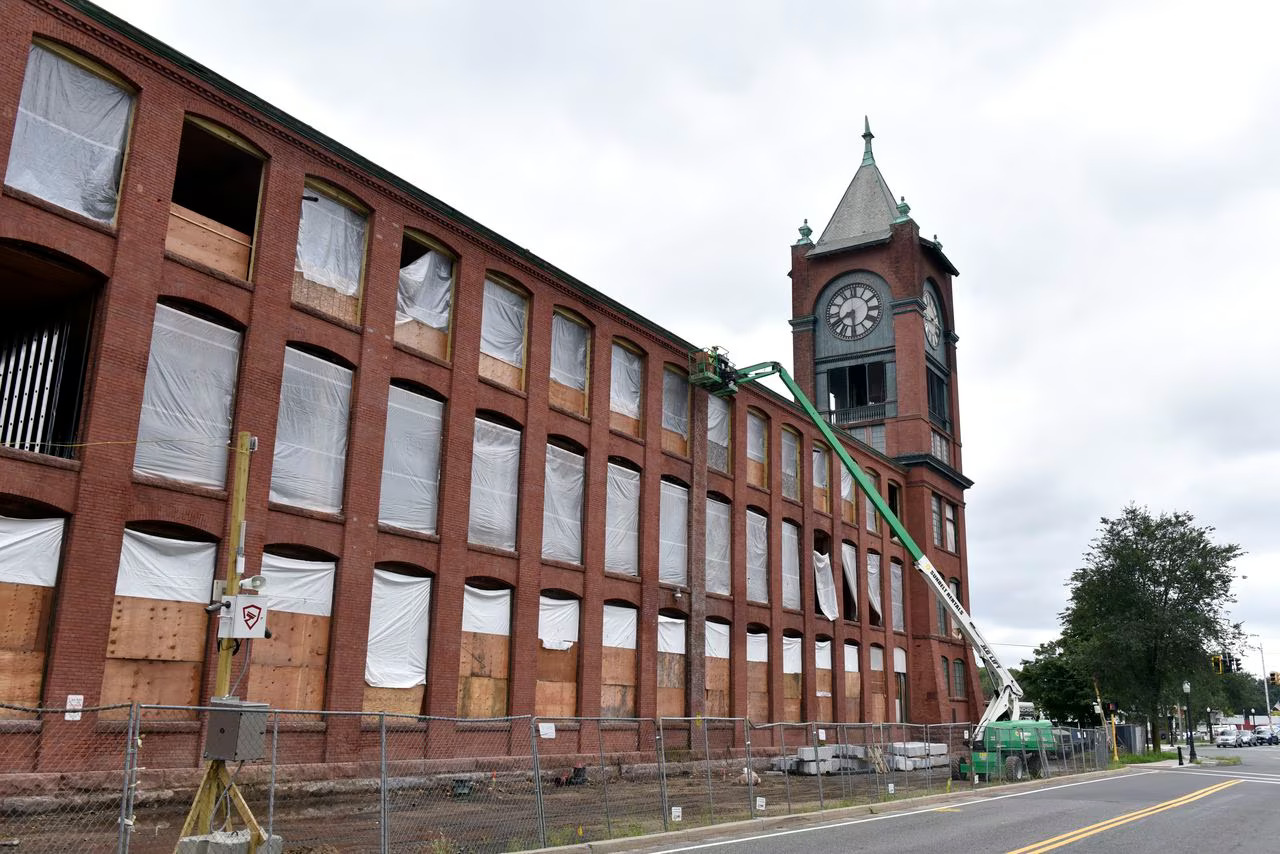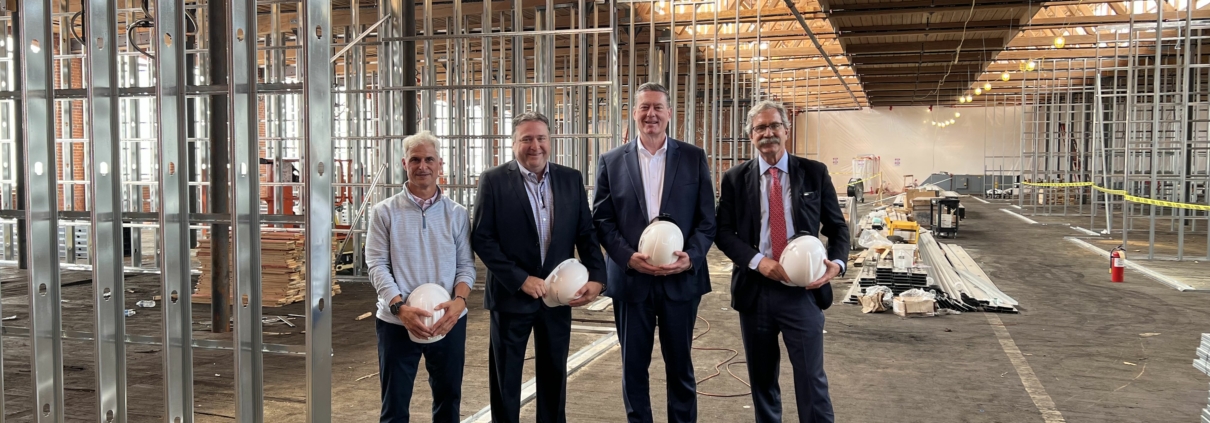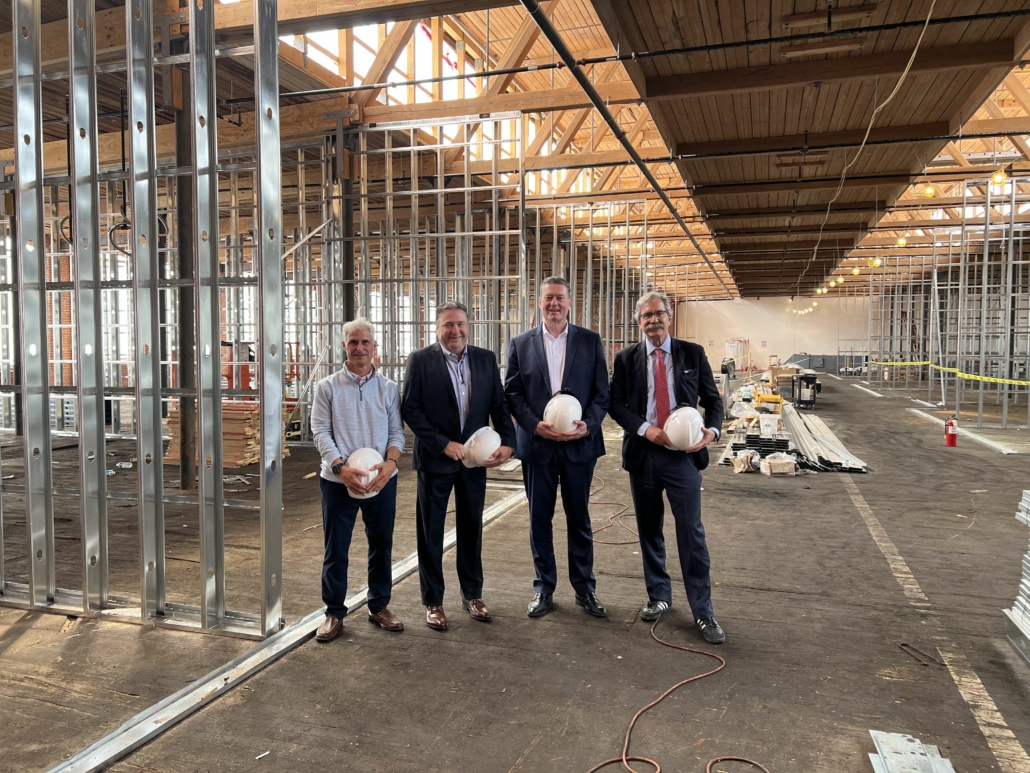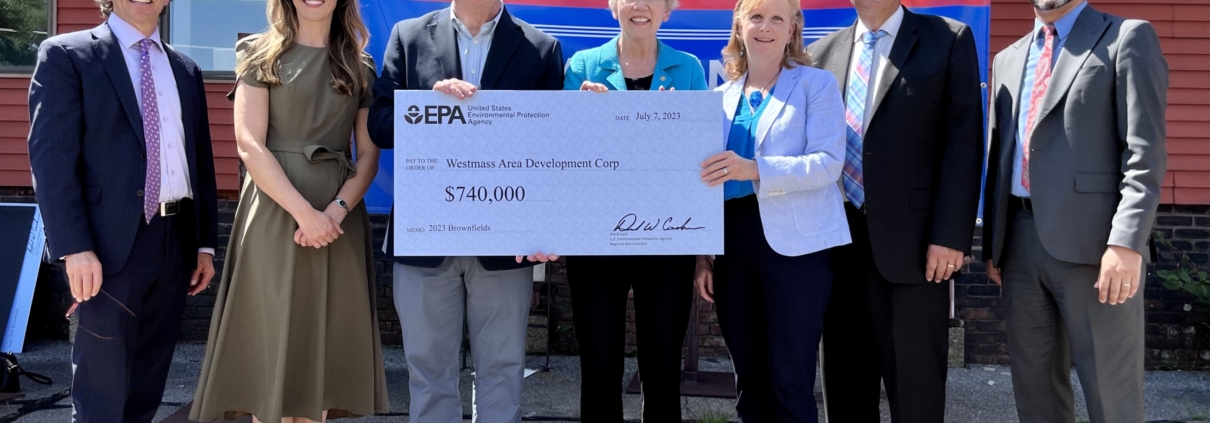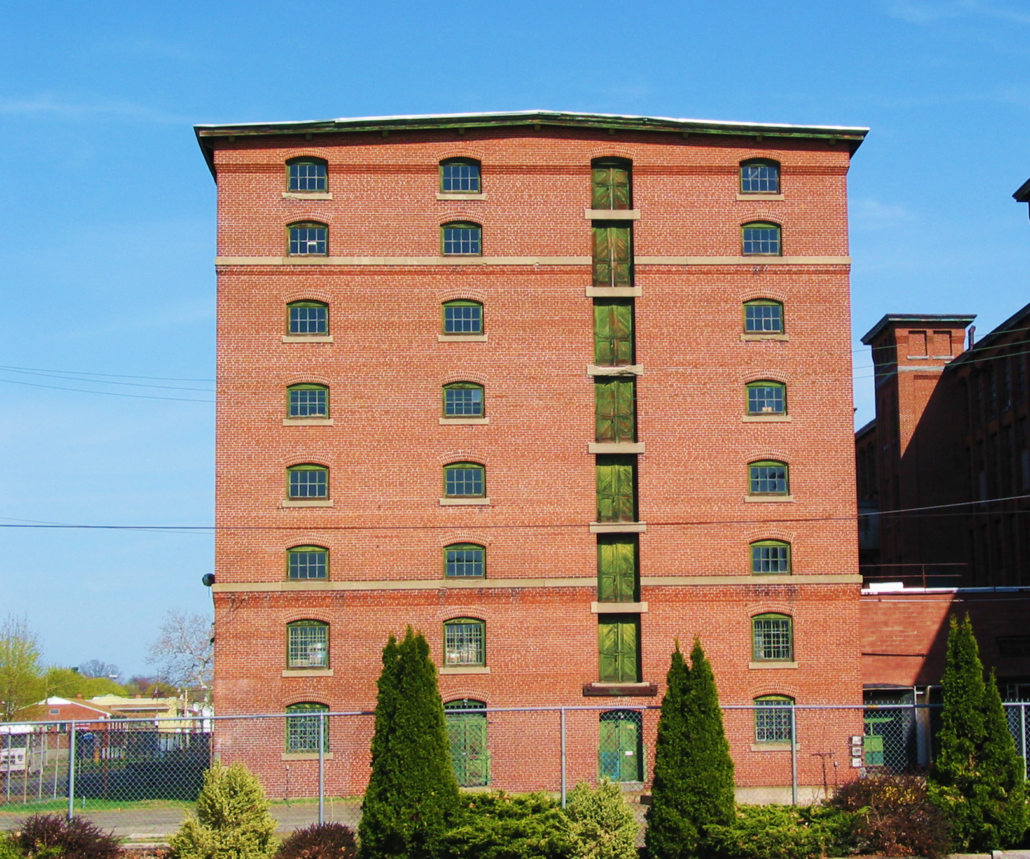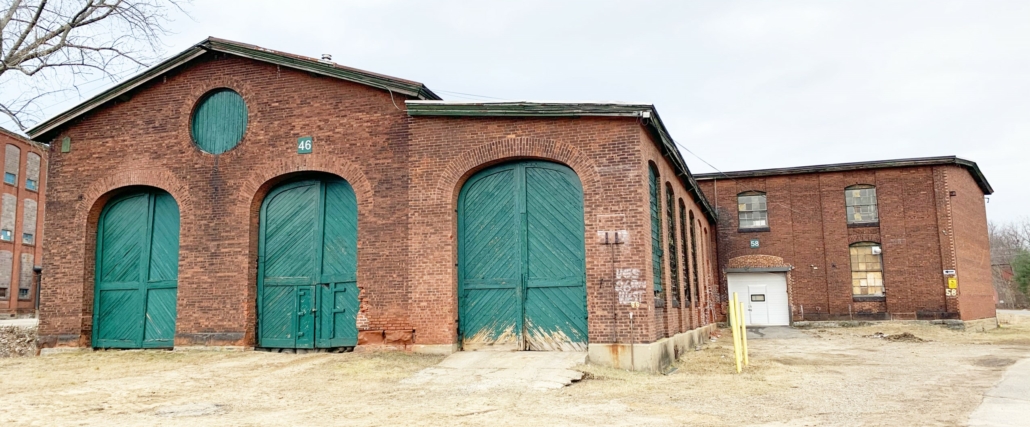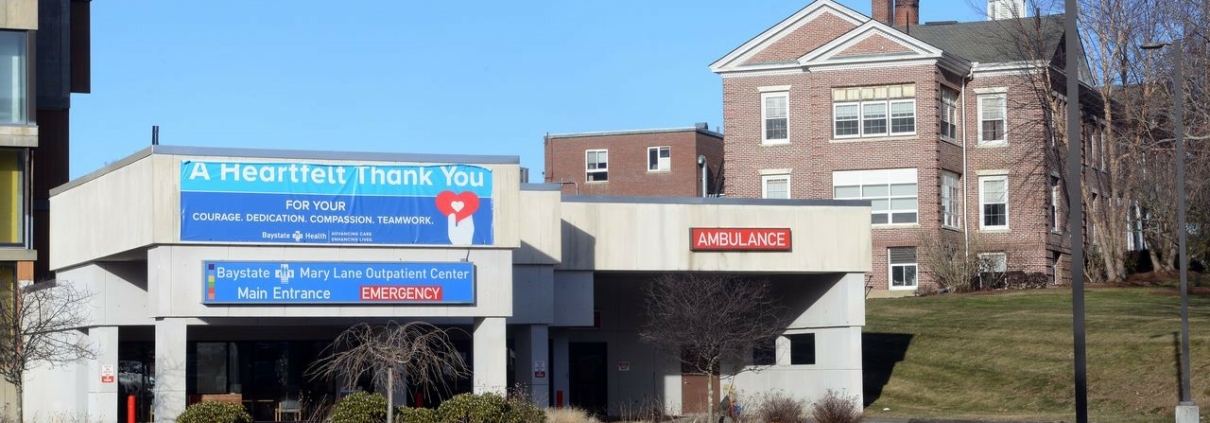BusinessWest (September 15, 2023)
George O’Brien
Community Spotlight
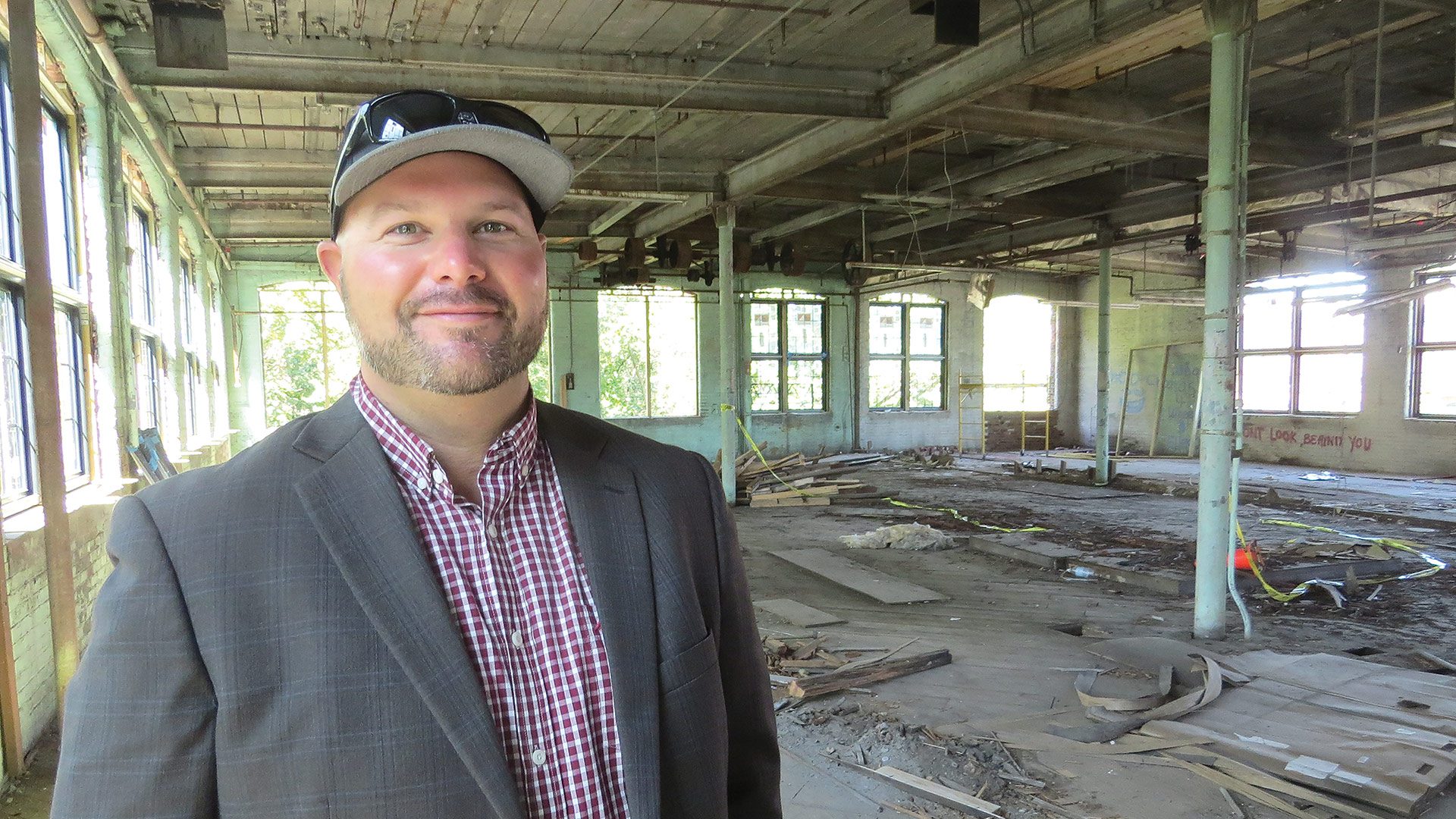
A.J. Crane acquired the ‘carpentry’ building at Ludlow Mills with the goal of having it redeveloped, with a restaurant being the preferred use. Staff Photo (BusinessWest)
As he led BusinessWest on a tour of what’s known as the ‘carpentry building’ at the Ludlow Mills complex, A.J. Crane walked up a deteriorated but still solid set of stairs to the second floor, and then to the row of new windows looking out on the Chicopee River, maybe 150 feet away, the riverwalk in front of it, and a stretch of land before the walk on which a patio could be built.
“Imagine the possibilities,” he said, adding that he certainly has, and that’s why he acquired the property from Westmass Area Development Corp., which purchased the mill in 2011, with the intention of renovating it and then leasing it out, perhaps to a restaurateur — the master plan for the mill complex calls for one at this location — although he doesn’t really know what the market will bear at this point.
What Crane, president of Chicopee-based A. Crane Construction Co. (and a Westmass board member) does know is that nothing can be built that close to the river today. Well, almost nothing; this property is grandfathered, so it can be developed. And that’s a big reason why he took on this risk — the property has been vacant for decades and needs a considerable amount of work for any reuse — and has invested heavily in its renovation.
But there’s another reason as well.
“I just wanted to be a part of this,” he said, waving his hand in a sweeping motion to encompass the sprawling mill in front of him.
‘This’ is the transformation of the mill complex, once home to a jute-manufacturing facility that employed thousands and played a huge role in the town’s development, into, well, a community within a community, one that is already home to residents and businesses of various kinds, and, perhaps someday, in the former carpentry shop, a restaurant.
This transformation is an ongoing process, one that was projected to take 20 years when Westmass acquired the property 12 years ago, and may take another 20 still, said Jeff Daley, president and CEO of Westmass, noting, as Crane did, that the pieces to the puzzle are coming together.
And as Daley and Jeff LeSiege, vice president of Facilities and Construction at Westmass, conducted a walking tour, they pointed to several of these pieces — from the ongoing renovation of the landmark ‘clocktower building’ (Building 8) into 95 apartments to the construction of two new parking lots; from extensive water, sewer, and electrical work to new businesses such as Movement Terrain, which boasts an obstacle course and an Astroturf arena (more on all this later).
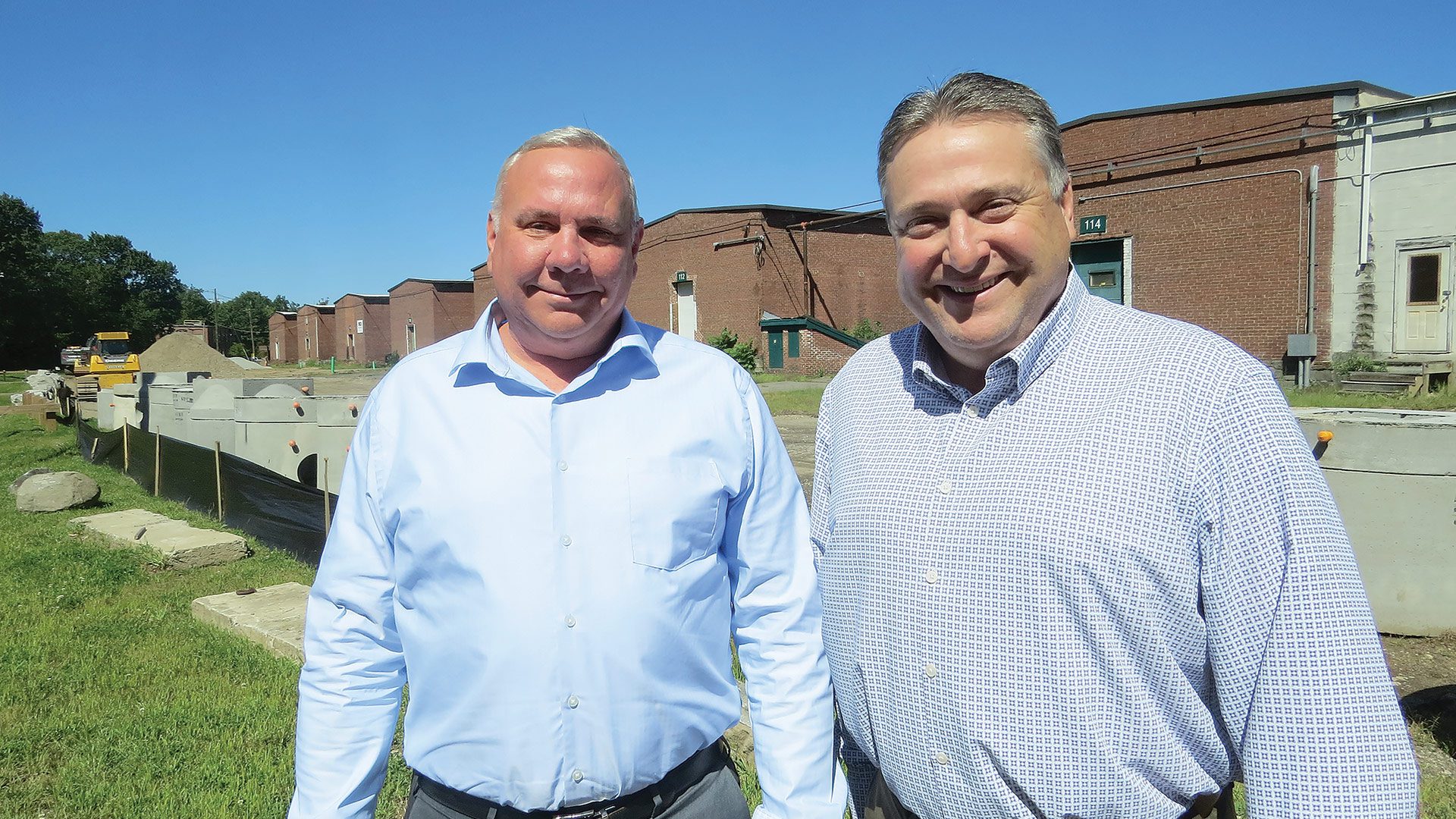
Jeff LeSiege, left, and Jeff Daley stop by one of two large parking lots being created at Ludlow Mills. Staff Photo (BusinessWest)
Then there’s the clocktower itself, which is slated for renovation, said Daley, adding that he’s not sure when the last time the clock — which is on the town seal and the masthead of the local newspaper — worked, but “it’s been a very long time.”
Transformation of the mill, which has been well-chronicled by BusinessWest over the past dozen years, is the story in Ludlow. But not the only story.
Another is a possible charter change making the community a city and changing its form of government from the present Board of Selectmen to one of several options, including a town manager/Town Council format, a mayor/City Council alignment, or perhaps a mayor/manager/council arrangement.
The town has hired the Edward J. Collins Center for Public Management to guide it through this process, said Town Administrator Marc Strange, adding that a charter-review committee will gather in the coming weeks and meet consistently for roughly a year, with a charter to be presented to town-meeting voters in October 2024, with a new form of government possible by the middle of 2025.
Meanwhile, there are some infrastructure projects moving forward, especially an ambitious streetscape-improvement plan for the East Street corridor, which leads into Ludlow Mills.
For this, the latest installment of its Community Spotlight series, BusinessWest takes an in-depth look at Ludlow and its many developing stories.
No Run-of-the-Mill Project
Hanging on a wall on the ground floor of Ludlow’s Town Hall is a large aerial photograph of the section of town beside the Chicopee River, circa the 1920s.
Glancing at the image, the enormity of the mill complex — then even larger than it is today — comes clearly into focus, literally and figuratively.
The mills were, the many respects, the heartbeat of the community and an economic force, a supplier of jobs and vibrancy. And over the past several years, they have become that again, with new developments seemingly every year.
The latest, and most visible, of the latest developments is the ongoing renovation of the L-shaped clocktower building, including replacement of the hundreds of large windows that provided needed light for the mill workers.
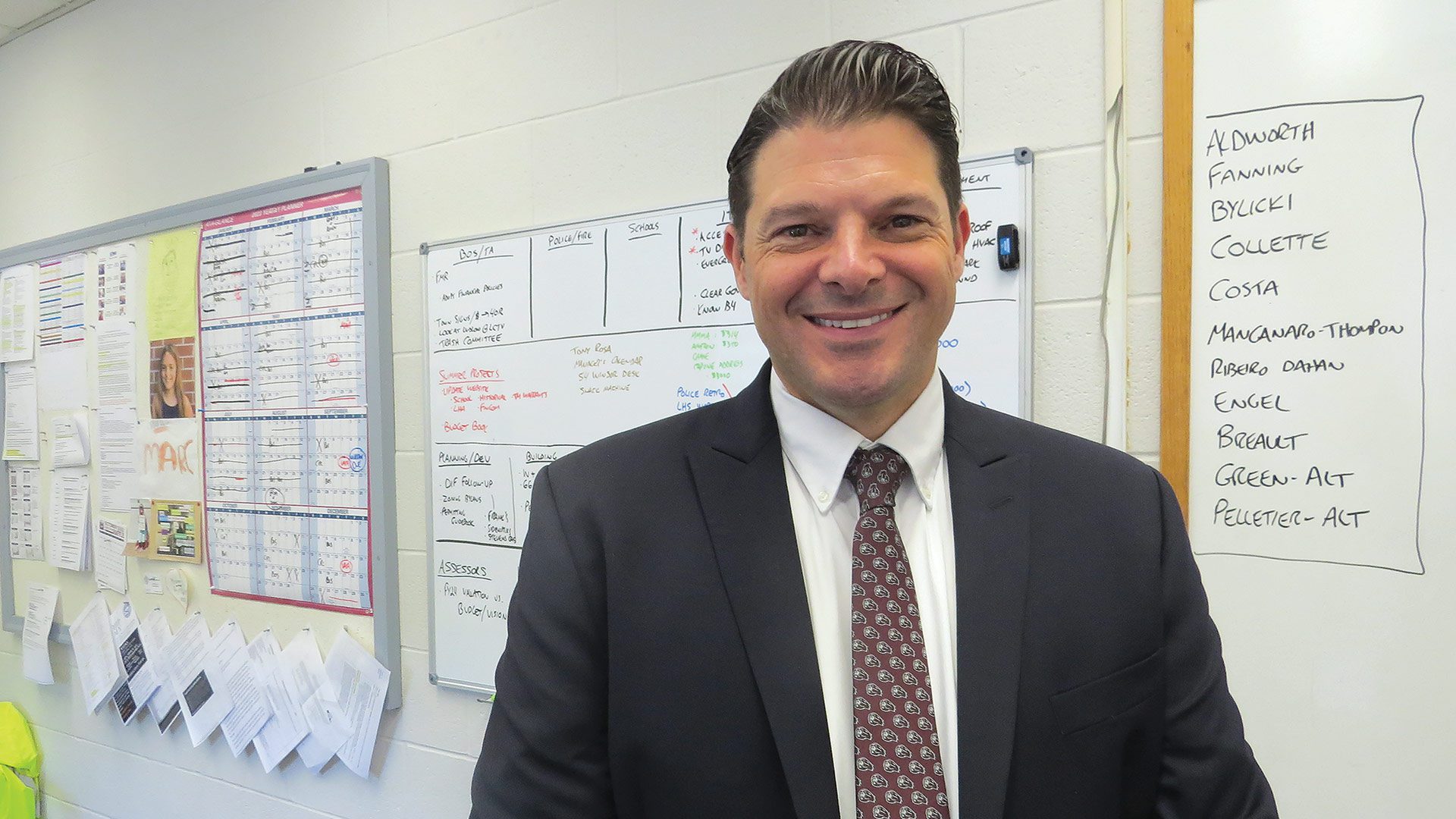
Town Administrator Marc Strange says a change of government is needed in Ludlow. Staff Photo (BusinessWest)
The upper floors will be converted into nearly 100 apartments on the upper floors, with 48,000 square feet of space on the ground floor set aside for commercial development, Daley said, noting that this commercial space, to be built out to suit the needs of tenants, would be appropriate for a number of uses, including as home to support businesses for the growing number of people living in the mill as well as the surrounding area.
The apartments will be available for lease next July, he added, noting that there should be considerable demand for the units given both a regionwide housing crunch and a six-year waiting list for units in nearby Building 10, the first of the mill buildings to be redeveloped into housing.
Other developments at the mills include $2.1 million to replace water and sewer piping to connect to the two dozen old stockhouses on the property, all of which are sporting new roofs, he said, as well as construction of two new, and sorely needed, parking lots.
One of these lots, with 150 spaces, is nearing completion, with landscaping and other finishing touches to be completed, while the other, located across Riverside Drive from the carpentry building and expected to feature another 75 spaces, is in the early stages of construction.
“These parking facilities are for tenants and visitors alike,” Daley said, adding that parking is a critical need as more of the spaces within the complex are developed.
Meanwhile, work continues on the carpentry building, a 13,200-square-foot brick structure between Riverside Drive and the Chicopee River. Crane told BusinessWest it had probably been on the market for 20 years, and really came onto his radar screen four years ago.
He described it as a solid investment opportunity — albeit one requiring a large investment on his part — but also a chance, as he said, to be part of the larger story of the mill’s transformation into a community, and a destination.
“I couldn’t afford any of the larger buildings, so I bought a smaller building that I thought could be an important part of what we’re doing here,” he said. “It’s exciting to be part of this.”
Every day, he said, dozens of walkers, joggers, and runners on the riverwalk will stop and ask him about the building’s next life. He tells them he’s not sure, but he’s anxious to find out.
Crane said he has replaced the roof and is currently putting new windows in. When that work is completed, he will begin entertaining options to lease the property, with a restaurant certainly among those options.
“I’m open to … whatever,” he told BusinessWest. “I bought the building knowing you could never build that building again so close to the water.”
There are many spaces still to be developed, Daley said, including the massive (500,000 square feet) Mill 11, the largest building on the property, as well as the greenspace at the eastern end of the property given the informal name ‘the back 40’ (acres) and the formal name Millside Commercial Park. A MassWorks grant has been received to build a road and cul-de-sac through that property, and the project recently went to bid.
“That will open that back acreage for development, and we’re excited that this is moving forward as well,” he said, adding that he expects the road to be ready by June of next year.
Officially, there will be roughly 38 acres of land available to sell or lease, he went on, adding that there should be considerable demand.
“I think that, once it gets out on the street to bid, we’re going to get a lot of inquiries,” he said, noting that there will six different lots of varying sizes, including one large lot that can accommodate a 250,000-square-foot building. “I do know there is a great shortage of available land and available buildings at this time, and I think we’re going to have some good interest in the property.”
As for the preferred uses, Daley said manufacturing is at the top of that list due to the job-creation potential, but the market will ultimately determine what happens with that acreage.
“We’re certainly going to work to make sure it’s a good fit, not only to the mills, but to Ludlow,” he told BusinessWest. “We’re not just going to take anyone willing to buy it; it’s got to be a business development that fits the makeup of what we’re trying to accomplish at the mills.”
Progress Report
Strange came to Ludlow as town administrator in the spring of 2022, marking a course change for the former director of Planning and Development for Agawam and selectman in Longmeadow.
He told BusinessWest that he saw the position in Ludlow as an opportunity to take a leadership position in a community and use his various skill sets to effect change in this community of roughly 21,000 people.
“I love municipal government,” he said. “I know it sounds cliché, but it gives you a chance to impact people’s lives every day in a way that you can’t at the state level or the federal level. I just fell in love with that.
“I started thinking about opportunities to become a town manager or town administrator,” he went on, adding that he was a finalist for the same position in East Longmeadow when he was chosen as a finalist in Ludlow, and ultimately chose the latter.
“Ludow is a great fit for my personality and a great opportunity for growth, both for me and the town,” he went on, acknowledging that these are certainly intriguing times for the community, especially when it comes to a potential, and likely, change in the charter, something he believes is necessary, as well as the Ludlow Mills project and the many developments there.
“A change in government is much needed,” he said. “We’re no longer a town; we’re a 21,000-person city.”
And a growing one, he noted, adding that the mill project will continue to bring more new businesses and residents to the city, and vibrancy to that section in particular.
With that in mind, the town is blueprinting extensive infrastructure improvements to the East Street corridor, from the mills to Ludlow Country Club, Strange noted, and expanding its District Improvement Financing area, which is currently just the footprint of the mills, to East Street.
Conceptual plans are being prepared for the East Street area, he said, noting that one calls for a “modern, loud-colored concept,” one has a “more urban feel,” while another has more green infrastructure, with planters and a “more earthy feel.”
The various options will be presented to the Board of Selectmen, who will make the final decision, he said.
Overall, Ludlow is largely built out, with the notable exception of the mill complex, Strange said, adding that, moving forward, considerable energy is focused on improving what would be considered the downtown area — that section just over the Route 21 bridge connecting Ludlow with Indian Orchard — so it may better serve the growing number of residents in that area, and also perhaps serve as a destination.
“We’re focused on maximizing our downtown area, through development, through infrastructure improvements, through aesthetic improvements — however we can do it,” he said. “We do have a budding, or increasing, population of residents down at the mills; they have their condos and the riverwalk, but what kind of other amenities can we provide for them? That’s our focus and our goal right now.”
Bottom Line
As Daley noted, the clock in the famed tower hasn’t worked in a very long time.
Getting those hands to move again is one of many intriguing developments in this community, one, in many respects, whose time has come.
Original article available here.
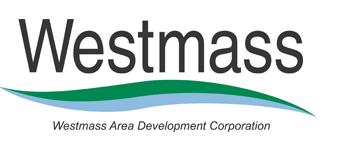

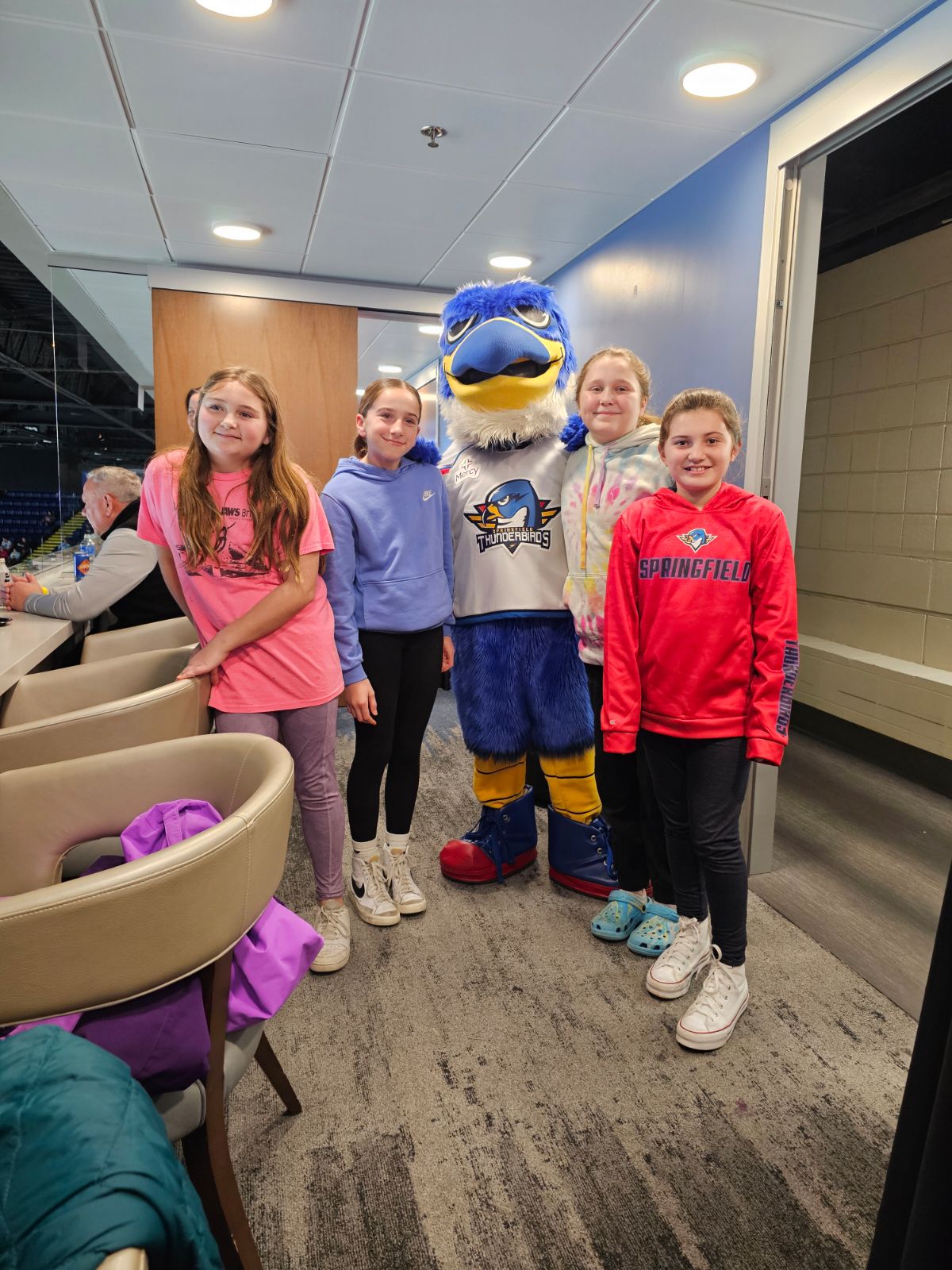
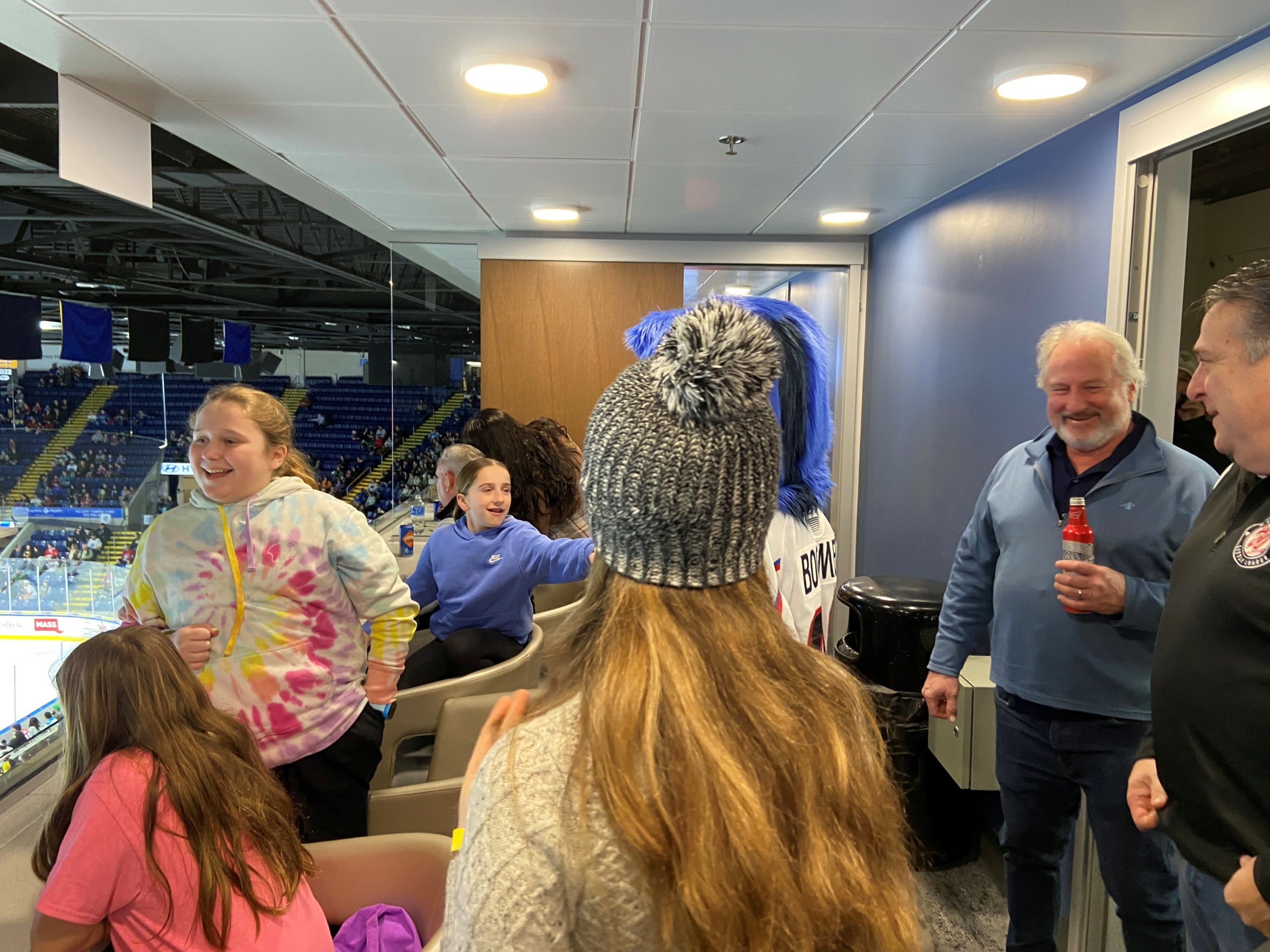






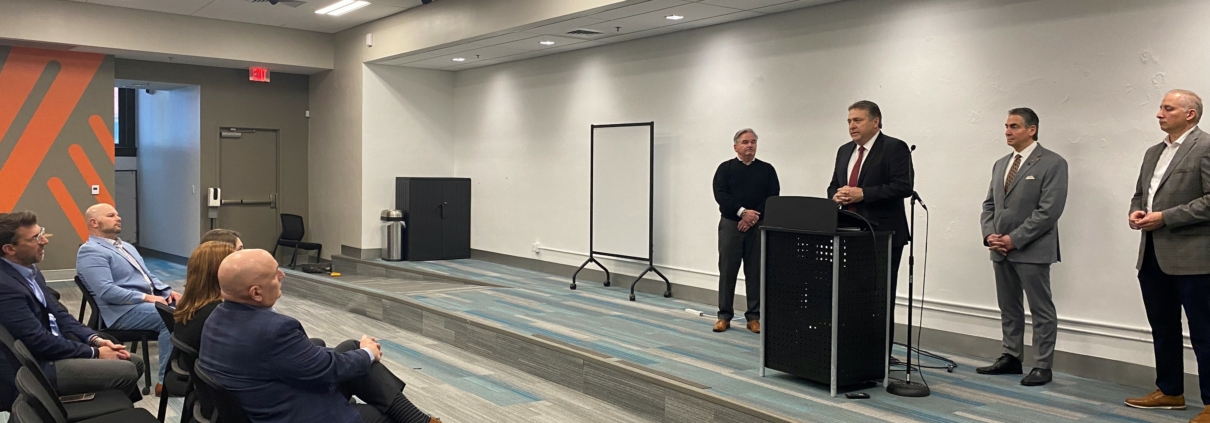
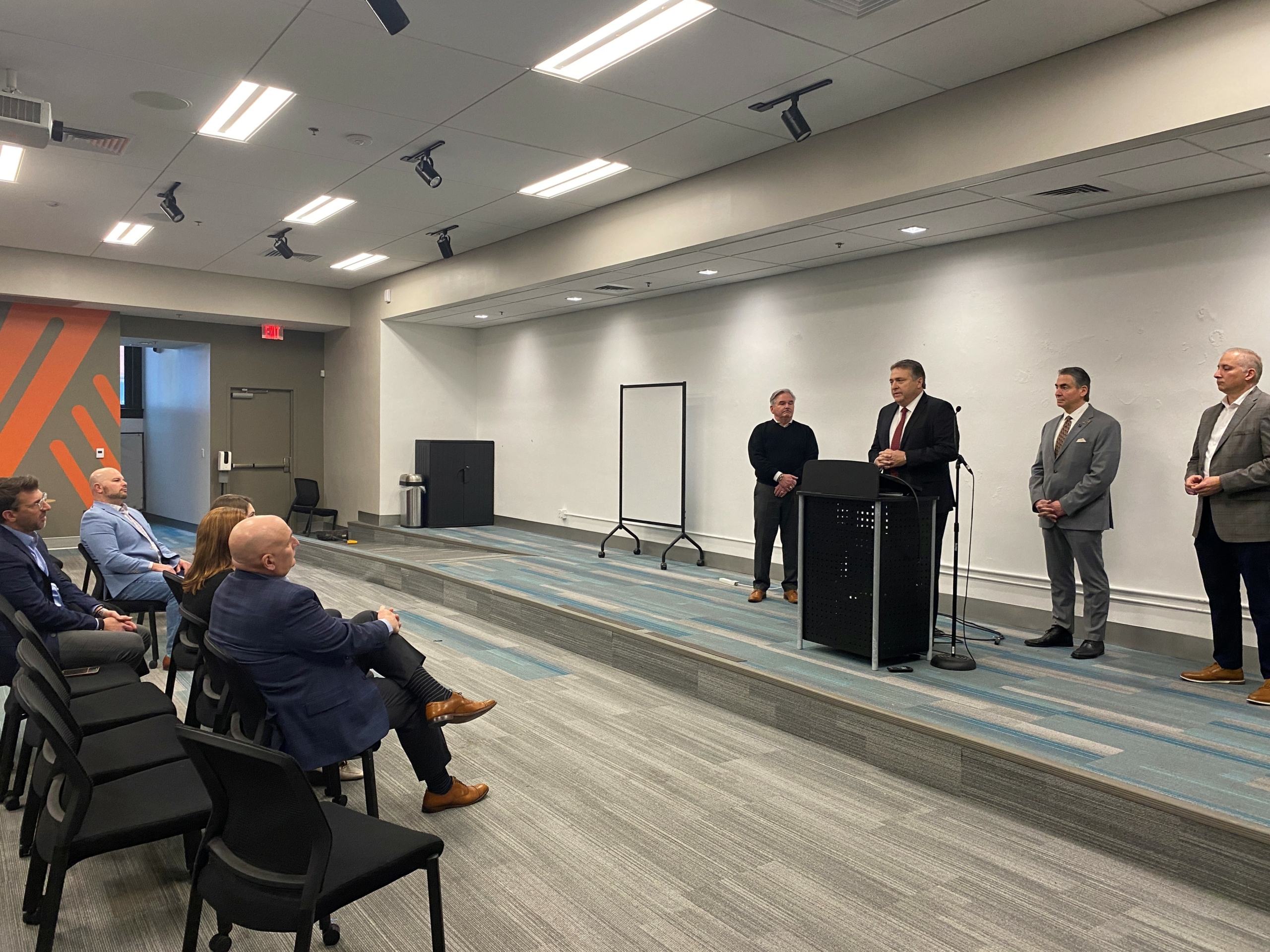
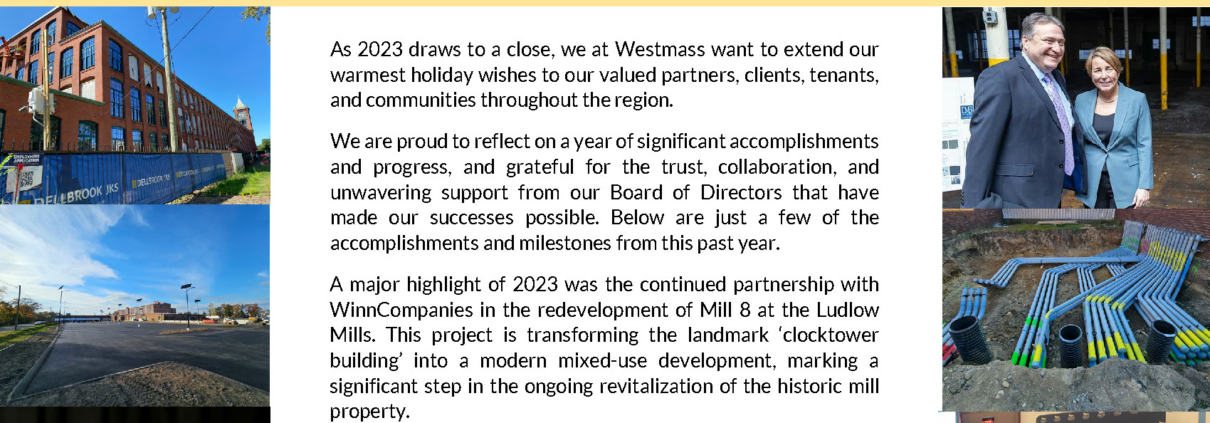
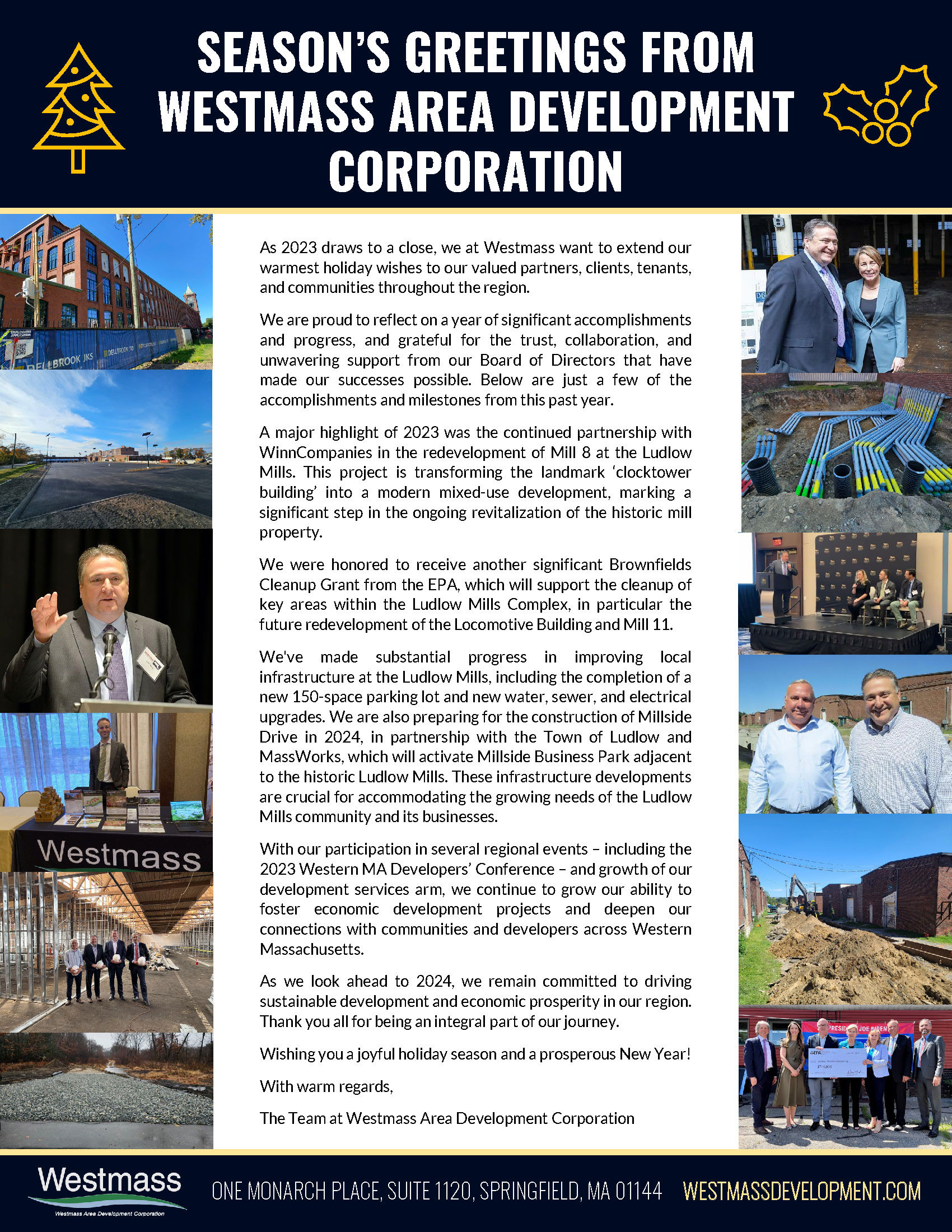
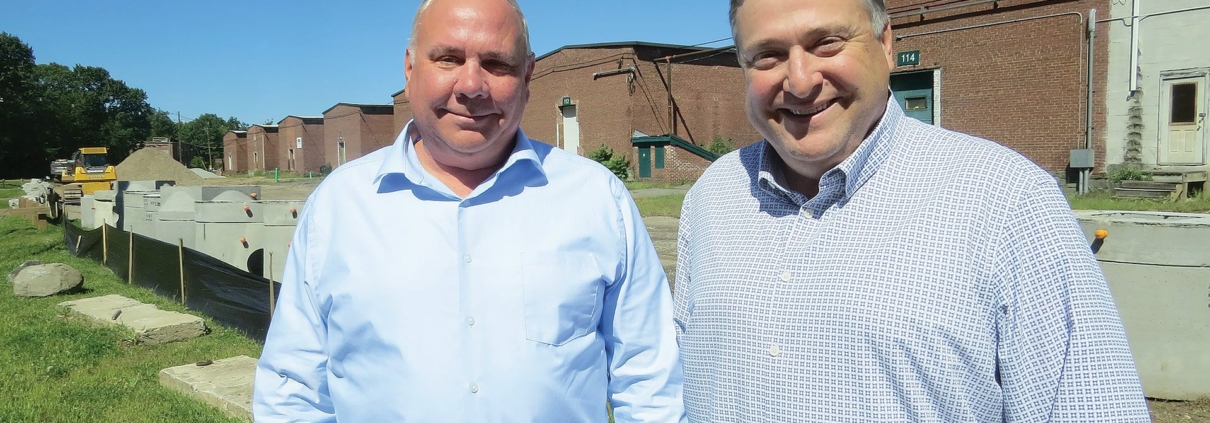



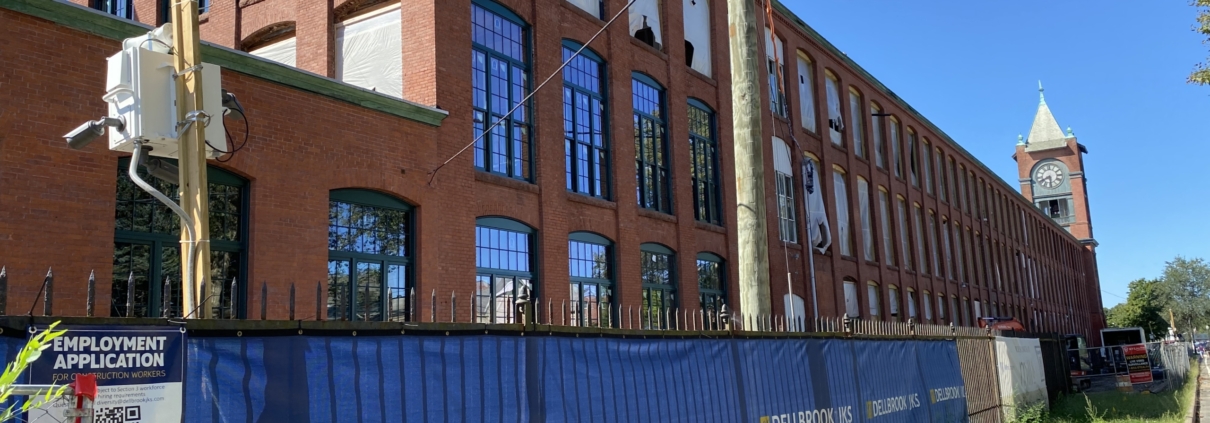
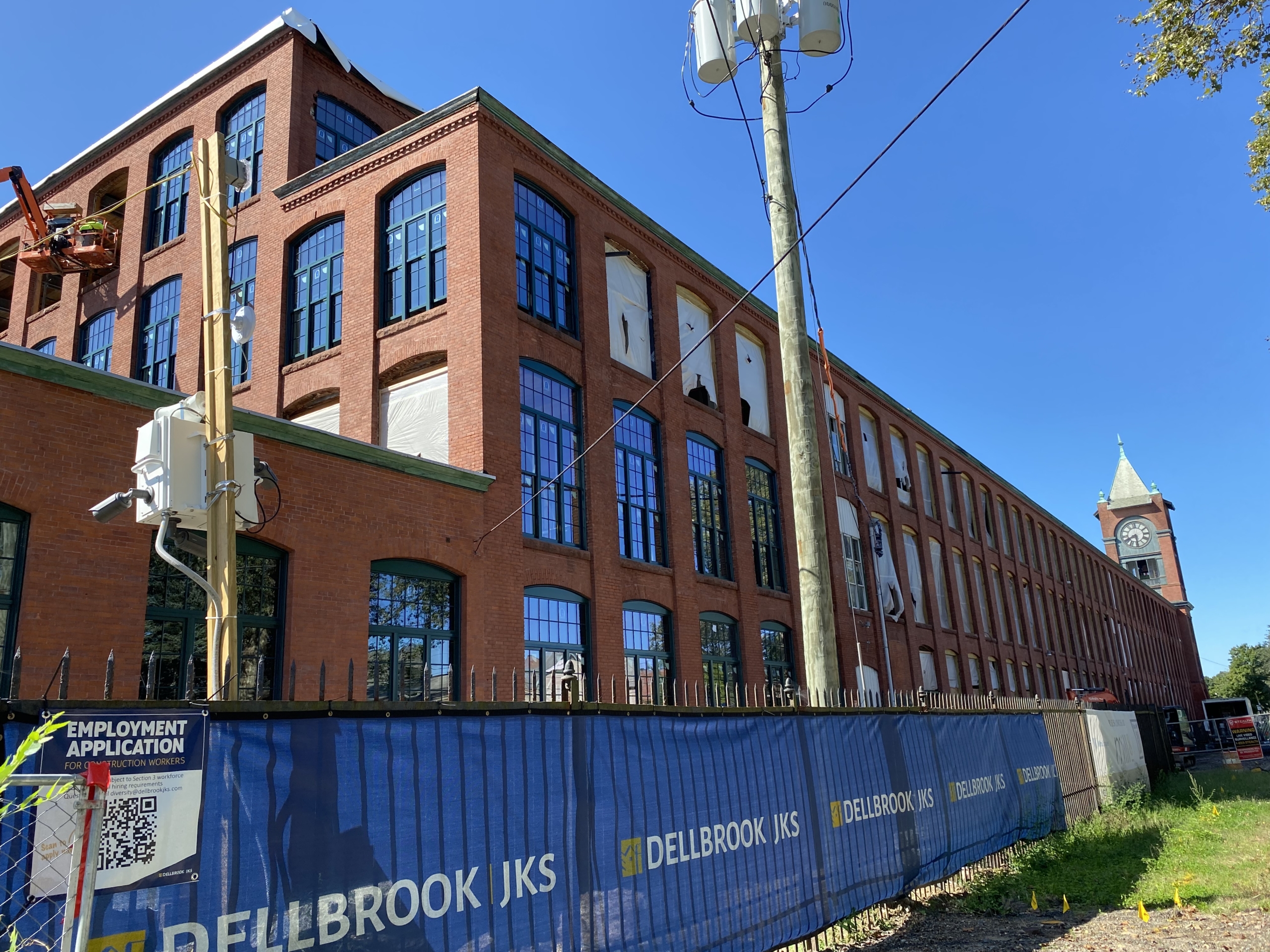
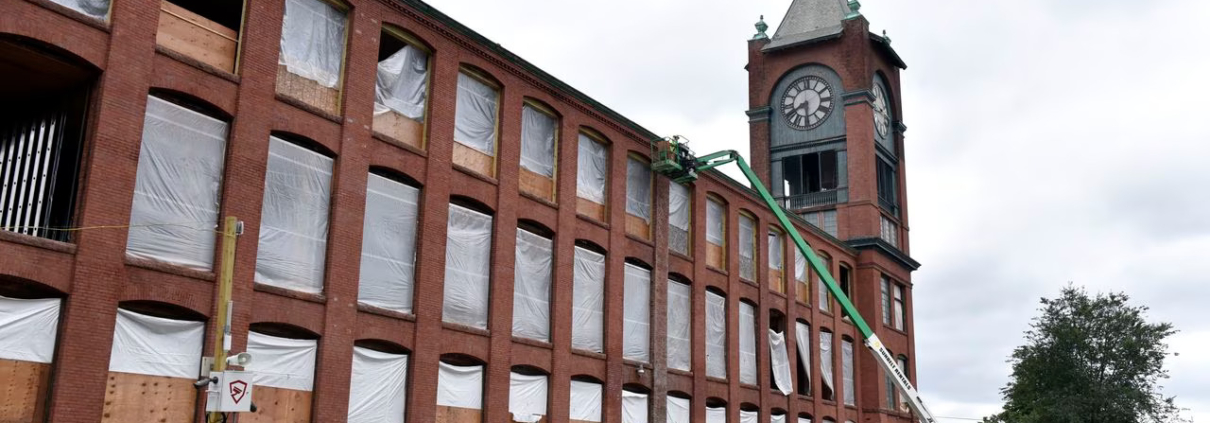 Don Treeger / The Republican 8/17/2023
Don Treeger / The Republican 8/17/2023